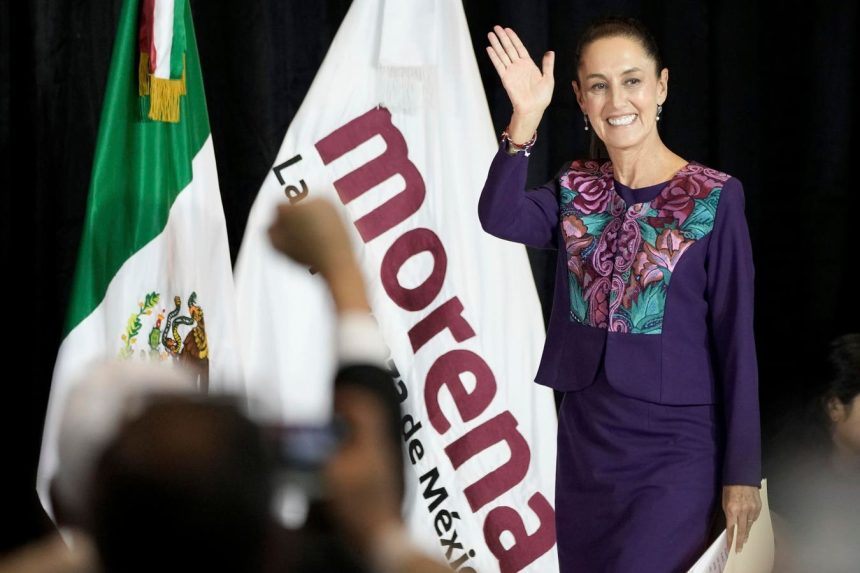Claudia Sheinbaum won a landslide victory in Mexico’s 66th presidential election, becoming the country’s first female president. However, the scale of the gains for her Morena party and its allies took markets by surprise, with some investors fearing the super-majority results would pave the way for the ruling coalition to pass constitutional reforms without opposition support.
The market reaction to the election results was severe. Stocks in Mexico plummeted more than 6% the following day and the iShares MSCI Mexico ETF closed 10.7% lower on heavy trading volume. It was the worst day for Mexican stocks since the Covid shock in 2020.
The Mexican peso also experienced a significant decline. It dropped more than 4% against the U.S. dollar, hitting a fresh seven-week low of 17.754 to the dollar and ending the day down 3.8% at 17.671 per dollar. It was the weakest daily close for the peso since last November. The move was particularly fierce because traders who owned the Mexican peso against other currencies due to the attractive carry associated with the trade rushed to sell their positions.
Investors are worried that the Morena party’s strong mandate might lead to market-unfriendly policies, including constitutional reforms that could negatively impact the business environment. This uncertainty has caused market dislocation and volatility in the peso.
The proposals outlined by former President Andrés Manuel López Obrador, which newly elected Sheinbaum is expected to prioritize and implement, fall into several categories: judicial and electoral reforms, pension and social welfare reforms, and economic and environmental reforms.
Judicial And Electoral System Changes
- Transforming the National Electoral Institute into a new body with its members elected by popular vote
- Eliminating local public electoral organizations and transferring their functions to the new electoral body
- Reducing the number of deputies in Congress from 500 to 300 and senators from 128 to 64
- Changing the way Supreme Court Justices, magistrates, and judges are determined by moving to election by popular vote rather than by Executive appointment
Pension And Social Welfare Reforms
- Guaranteeing that every worker receives 100% of their final salary as a pension, despite lacking a clear financing mechanism
- Elevating various social programs to constitutional rank, including universal pensions for seniors and scholarships for students
Economic And Environmental Reforms
- Prohibiting fracking and open-pit mining
- Declaring Mexico free of genetically modified maize crops
- Limiting water concessions in areas with low water availability
- Mandating annual increases in the minimum wage above inflation
Investors are seeking reassurances from Sheinbaum’s administration about its commitment to maintaining a stable and predictable business environment. Mexico has benefited from nearshoring opportunities since the Covid-19 pandemic, positioning it as an attractive destination for U.S. companies relocating their supply chains closer to home. Any policy change that disrupts the nearshoring trend affects foreign investment in Mexico will impact the currency and the domestic economy.
The energy sector is also on alert. Concerns about protectionist policies that favor state-owned enterprises over private and foreign investments could also deter foreign investment and impact market confidence.
Claudia Sheinbaum’s super-majority election presents both opportunities and challenges for foreign investors. The adverse market reaction to the results is driven by fears of significant constitutional reforms, increased state control over critical sectors, and expanded social welfare programs that could strain the budget. It is quite possible that the anxiety about what might happen will outweighs the reality of the situation. Time will tell. Investors will likely be looking for clear and consistent policy communication in the coming days and weeks before jumping back into Mexican assets.
Read the full article here
















